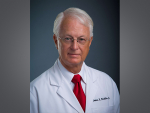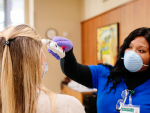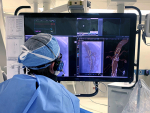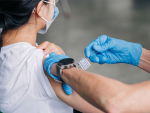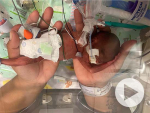Displaying items by tag: uab medicine
UAB O’Neal Comprehensive Cancer Center, Morehouse School of Medicine and Tuskegee University collectively receive $18 million U54 grant from the National Cancer Institute.
Kirklin received this award for his dedication to advancing the science and treatment of children through the journey of heart transplantation.
More than 88 million Americans have prediabetes, but the good news is that this condition can be reversed with just a few simple steps.
Young cancer survivors are at higher risk of developing subsequent HPV-related cancers than the general population, but less likely to receive the HPV vaccine. Findings from the first clinical trial of its kind support making HPV vaccination a routine part of oncologic care for all young cancer survivors, researchers say.
Many Americans are catching up on missed holiday plans, but should you go ahead and receive your booster shot to ensure the safety of yourself and others?




